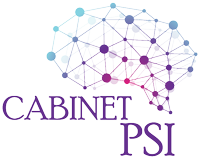
Use of psychiatric drugs during pregnancy and breastfeeding
28 August 2023
What do we need to know about sleep disorders?
6 September 2023The Impact of Alcohol on Society
Alcohol dependence is a condition defined by a continuous desire to consume alcohol, regardless of the negative health effects leading to premature death (WHO – 2.3 million deaths), making it a real public health problem. In Romania, alcohol consumption is a major problem, with insufficient awareness of the consequences. Our country ranks second in the EU for alcohol abuse.
The path to addiction-steps
- Initial exploration: The person tries alcohol out of curiosity or under the influence of a group of friends.
- Regular consumption: Consumption becomes a habit in social activities.
- Concern and frequent consumption: Consumption increases in frequency, becoming a concern.
- Establishment of addiction: The person becomes driven by the need to consume alcohol, with the appearance of withdrawal symptoms when trying to reduce consumption( anxiety, aggression).
There are different types of alcoholism, such as Alpha, Beta, Gamma, Delta and Epsilon alcoholism, each with specific characteristics:
- Alpha alcoholism: Alcohol is consumed with the desire to escape from problems and tensions, without loss of control over consumption.
- Beta Alcoholism: Involves physical complications, but lacks physical or psychological dependence.
- Gamma Alcoholism: Here addiction and metabolic adaptation to alcohol develops, increased tolerance to the substance.
- Delta Alcoholism: This is where withdrawal symptoms occur even with short breaks from drinking, and drinking becomes a central concern.
- Epsilon alcoholism: Severe form of dipsomania.
Alcohol dependence can be influenced by the following factors:
- Genetic inheritance (if members of your family have had a problem with alcohol, chances are you’ll have this problem);
- your individual reaction to alcohol (some people can drink more without feeling any ill effects, while others feel bad even after a few drinks);
- stress factors (in times of stress we may be tempted to drink alcohol to feel better, but this behaviour can lead to addiction);
- depression and anxiety (sometimes alcohol helps them feel better for a short time, but this can become dangerous with an increased risk of becoming addicted to alcohol to avoid emotions).
Complications of alcohol dependence include:
- Somatic disorders (changes in physical appearance: may become thin or gain weight unhealthily) presence of telangiectasias (dilated blood vessels; pancreatitis, ulcer, cirrhosis of the liver, esophageal varices, pneumonia, bronchitis, emphysema, hypertension, cardiomyopathy, megaloblastic anemia, vitamin deficiency, decreased testosterone, menstrual disorders, fetal alcohol syndrome- mental retardation, facial abnormality, growth disorders).
- severe psychiatric disorders (alcohol-induced psychotic disorders – Wernicke’s encephalopathy and Korsakov syndrome), cognitive impairment, alcohol withdrawal, delirium tremens, black-outs (short-term amnesia).
Correct diagnosis includes a proper interview and screening – this is the only way to intervene at an early stage to improve their health and well-being.
°Interviewing involves assessing quantities consumed to identify problem drinking.
°Markers of chronic alcohol consumption: GGT,TGO,TGP, FEV, CDT, CHOLESTEROL
New studies claim that there is no alcohol consumption that is beneficial to the body and therefore medical institutions do not set a safe dose.
Treatment and therapy play a key role in the management of alcohol dependence, along with the support of support groups.
Alcohol withdrawal may be necessary in severe cases, but it is only the first step. Drug treatment helps in managing withdrawal symptoms, but psychological therapy plays a key role in changing behaviour and lifestyle. Alcoholics Anonymous support groups provide a platform for mutual support and effective programmes for long-term alcohol cessation.
!!!Restrictions for former heavy drinkers!
- should avoid alcohol.
- Quitting is the best way to avoid further complications and relapses.
We provide below two questionnaires on self-assessment of alcohol consumption:
The AUDIT questionnaire and the CAGE TEST.
Answer the questions in the tests below:
AUDIT Questionnaire – Alcohol use Disorder Identification Test
How many times have you consumed alcoholic beverages in the past year?
0 – never
1 – once a month or less
2 – 2-4 times a month
3 – 4 or more times a week
How many units of alcohol did you consume in one day (on average) when you used alcoholic beverages?
One unit of alcohol = 1 shot (40 ml of spirits or 1 glass of wine or 1 bottle of beer).
0 – between 1-2 units
1 – between 3-4 units
2 – between 5-6 units
3 – between 7-9 units
4 – 10 or more units
How many times have you consumed more than 6 units of alcohol per day?
0 – never
1 – more than once a month
2 – once a month
3 – once a month
4 – daily or almost daily
How many times have you started drinking alcohol and couldn’t stop?
0 – never
1 – more than once a month
2 – monthly
3 – weekly
4 – daily or almost daily
How many times have you been unable to meet your daily obligations (at work, family, etc.) because of drinking in the past year?
0 – never
1 – more than once a month
2 – monthly
3 – weekly
4 – daily or almost daily
How many times in the past year have you felt the need to take a sip of alcohol (a drink) in the morning to overcome a hangover?
0 – never
1 – more than once a month
2 – monthly
3 – weekly
4 – daily or almost daily
How many times in the past year have you had feelings of remorse or guilt after drinking alcoholic beverages?
0 – never
1 – more than once a month
2 – monthly
3 – weekly
4 – daily or almost daily
How many times in the past year have you had the experience of not remembering what happened to you the night before due to alcohol consumption?
0 – never
1 – more than once a month
2 – monthly
3 – weekly
4 – daily or almost daily
Have you been involved in accidents (road, workplace, etc.) due to drinking alcoholic beverages?
0 – No 2 – Yes, but more recently 4 – Yes, in the past year
Has a relative, friend or doctor expressed concern about your alcohol consumption or suggested that you stop drinking?
0 – No 2 – Yes, but not in the last year 4 – Yes, in the last year
Interpretation:
Each item is rated with values between 0 and 4 points. The minimum score is 0 points and the maximum score is 40 points. The higher the scores, the higher the alcohol consumption and dependence.
For the detection of alcohol dependent people with serious medical and social problems caused by excessive alcohol consumption, the threshold value recommended by Conigravo et al. (1995) is 8 points.
CAGE test
Questions Answers
C (cut down): Have you ever thought about cutting down on alcohol consumption?
No [0]
Yes [1]
A (annoyed): Have you ever been annoyed by people criticising you for drinking alcohol?
No [0]
Yes [1]
G (guilty): Have you ever felt guilty about drinking alcohol?
No [0]
Yes [1]
E (eye-opener): Have you ever consumed alcoholic beverages in the morning to calm down or to get rid of a hangover?
No [0]
Yes [1]
Interpretation:
- If a score of 1 is obtained, assistance through the family doctor is required to stop drinking, both in terms of risk of illness.
- A score higher than 2 is specific to alcohol dependence.
The treatment of alcohol dependence is a complex approach as consumption affects the central nervous system, impacting on information processing and emotional balance. The pitfall of alcohol use is that it becomes a ‘panacea’ for managing emotional distress and stressful life situations.
Initially, drug therapy plays a key role, but in the later stages, psychotherapy is the key to relapse prevention.
- Drug therapy in the treatment of alcohol dependence:
Treatment of alcohol withdrawal in an already diagnosed patient involves the administration of benzodiazepines in the prevention of withdrawal symptoms, especially when the patient is hospitalized. It is monitored very carefully, as there is a risk of complications, and the temptation to resume drinking may affect the effectiveness of treatment.
Benzodiazepines are known to protect against seizures, patients with a history of such seizures may benefit from anticonvulsants (such as Carbamazepine). Another recommended drug is Gabapentin, due to renal clearance, lack of drug interactions and cognitive effects.
Thiamine is again a drug with a key role in nourishing alcohol-damaged neurons to prevent Wernicke’s and Korsakoff’s psychosis.
The use of magnesium helps to prevent seizures as in patients with a history of seizures, and beta-blockers and alpha-blockers are indicated for the control of vegetative signs, and antipsychotics can be used in the treatment of delirium.
- Psychotherapeutic approach in the treatment of alcohol dependence:
Psychotherapy plays an important role in treating alcohol dependence, including encouraging patients to attend Alcoholics Anonymous sessions. This method promotes awareness and recognition of the problem as a first step towards recovery.
It is important to note that these approaches depend on the individual motivation of the patient and on a favourable socio-professional and family context.


